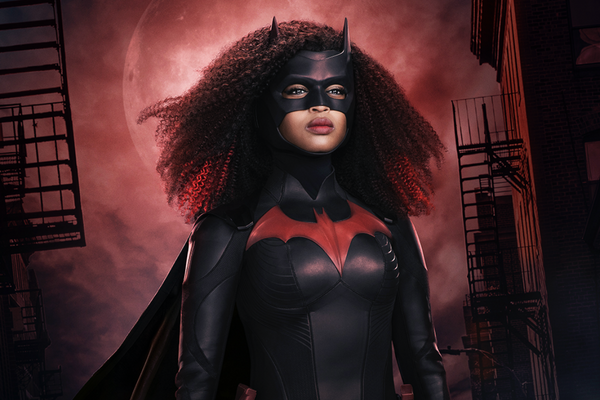This year has been yet another full of devastating cancellations of sapphic television shows, including First Kill, Legends of Tomorrow, Queer as Folk and The Wilds. But perhaps one of the most heartbreaking cancellations was Batwoman because of its queer Black representation.
In July 2020, The CW made history when it cast Javicia Leslie as Batwoman/Ryan Wilder in Batwoman‘s second season, after Ruby Rose, who had played Batwoman, departed the show. At the time, Leslie became the first Black Batwoman and the first bisexual Batwoman. This followed Batwoman’s series premiere in 2019, when Batwoman became the first LGBTQ+ superhero to lead a network TV show.
“I didn’t go into the role thinking that I was doing something monumental, I just went into it because I love the art and it just so happens that I check a lot of the boxes of the character,” says Leslie, who also identifies as bisexual.
“That wasn’t what I thought I was doing, but to see something monumental happen from, it was really beautiful. Really, really honoring,” she adds.
With these extraordinary firsts also came the privilege of shaping queer storytelling—Black queer storytelling, in particular. Batwoman did a fantastic job with this by choosing to eschew the traditional coming out narrative.
“What I love about Ryan is Ryan didn’t have a trauma story,” says Leslie. “A lot of times they tell their stories and it’s like they’re just coming out of this like very traumatic life-changing situation [followed by] a period of shame and guilt. Ryan didn’t have that. You really got to kind of just see this person be who they are.”
She adds, “I think that that was really powerful for a lot of people to see that that can exist, and to show their parents that it can exist, and to show their family members and their loved ones that it can exist.”
In season 3, Batwoman also dates Sophie Moore, a Black woman played by Meagan Tandy. This relationship was particularly impactful for Leslie and for the fans because it depicted two queer Black women in love.
“I thought that that was so powerful to see two black women in love. We never see that,” says Leslie. “And then it’s your lead. It’s not like these two side characters that they barely develop the story for, because that’s another thing that they do to our characters.”
Alluding to a sex scene between the two characters, she also adds: “It was really beautiful to see black skin and black skin like that. That seems small, but it’s not common for us, especially like major networks.”
When Batwoman and Moore got together on the show, the response from the fans was extraordinary. “Some black women telling me how they feel like their love was shown on that show, that was really powerful because that’s a huge community,” says Leslie. “You hire a black queer actress to play a black queer role. You’re gonna attract a lot of black queer women.”
She adds: “I think that everything that my character represents is a community that felt like they couldn’t be, and now that they’ve seen it, they can see that they can be it. I love to be able to tell that story.”
We can only hope that many more inclusive Black queer shows like Batwoman will follow in the future.


